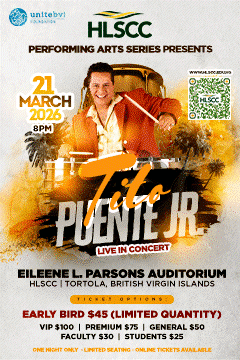Knowledge of slavery required for true Emancipation celebration - Smith


“We need to have an intimate and accurate knowledge of what it is we are celebrating. It’s not enough to say that we are celebrating our emancipation from slavery,” Smith said on the Umoja radio show aired on August 15, 2013.
He argued that persons needed to know what slavery was, where Africans were before slavery, what happened during the period of slavery and also the resultant effects of slavery on Africans as a people in modern day life.
“[This is] so that we could put that emancipation in its proper context and have the proper emotional attachment to it based on that information,” he added.
Smith stated that one of the challenges currently being faced was having the history of African people being taught and told accurately and on a regular basis. “We have come to a point where we want the history of the Virgin Islands to be taught in schools and to our children.”
He noted that while this history is important, Virgin Islands history needs to be told in the context of Caribbean history and Caribbean history in the context of African history given the various origins of people involved.
Recently, fellow commentator Donald E. de Castro referred to celebrations during the Road Town segment of the Emancipation Festival as “a complete disaster” and suggested that organisers had a long way to go to in order to meet the cultural essence that allowed for a meaningful celebration.







_04.gif)
_03.gif)





.jpg)








2_01.jpg)














7 Responses to “Knowledge of slavery required for true Emancipation celebration - Smith”
A similar example can be found in our political setting. From the 1940s to the early 1960s, we enjoyed a special breed of politicians who adhered to professional ethics and always place country before self. Like the shift in the population,this country has see a steady shift in the ethical behaviour of our politicians which continues to deteriorate at an alarming rate. The question we must ask ourselves, is it reasonable to asume that we can return to the good old days? Given the expectations of the electorate and the willingness on the path of our representatives to bow to the wishes of their constituants, it is highly unlikely that that desire will be realized. One can reasonably connclude that a return to "our coulture" will be as difficult as returning order to "our House". We have knowingly or unwittingly allowed ourselves to slip into this abyss from which recovery will be very painful to say the least.